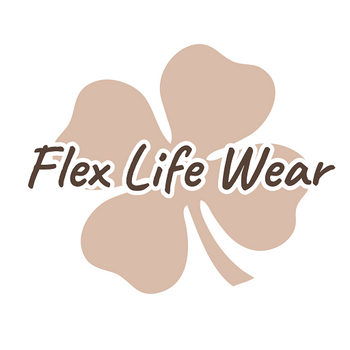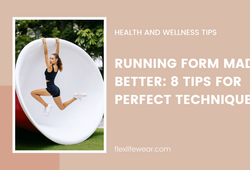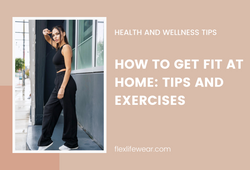Running is a fantastic way to stay fit and clear your mind, but it can be challenging to know what to wear when the temperature dips to 40 degrees Fahrenheit. Dressing appropriately for cooler weather is crucial to ensure comfort, performance, and safety. The right attire can help you maintain your body temperature, wick away sweat, and protect you from the elements. In this article, we'll guide you through the essentials of dressing for a 40-degree run, from base layers to accessories. Whether you're a seasoned runner or just starting out, these tips will help you stay warm, dry, and ready to tackle your miles, no matter the chill in the air.
What to Wear When Running in 40-Degree Cold
Choosing the right running attire for 40-degree weather involves layering effectively and selecting appropriate gear for each part of your body. Here’s a comprehensive guide on what to wear from head to toe to ensure a comfortable and efficient run.
Sports Bra
Mesh panels or cutouts are excellent features that enhance ventilation and airflow. A racerback design can provide better support and freedom of movement, while adjustable straps and a secure band ensure a personalized and comfortable fit. Opt for a sports bra with flatlock seams to minimize irritation and chafing during prolonged wear. Additionally, consider bras with removable padding for versatility and added comfort. Reflective elements can also be beneficial for visibility during early morning or late evening runs.

Base Layer Top
Wear a moisture-wicking base layer top to keep your torso dry and warm. Long-sleeve shirts made from polyester, merino wool, or technical blends are ideal. They provide the necessary insulation while efficiently managing sweat. Look for tops with thumbholes to help keep your sleeves in place and provide a bit of extra warmth for your hands.

Running Shorts or Tights
When selecting running shorts or tights for cooler weather, prioritize materials that provide warmth and flexibility.
- Running Shorts: If you prefer shorts, consider wearing them over tights for added warmth. Look for shorts made from moisture-wicking fabrics like polyester or nylon to keep you dry.
- Running Tights: Opt for tights made from lightweight, moisture-wicking fabrics like polyester or nylon blends. Mesh panels or ventilation zones are excellent additions, enhancing airflow to keep you cool. Look for tights with a snug but comfortable fit that allows for freedom of movement without causing chafing. Additionally, flatlock seams can help minimize irritation during long runs. A wide, adjustable waistband provides a secure fit while also enhancing comfort. Some running tights come with UPF protection to shield your skin from harmful UV rays, making them ideal for sunny runs. Lastly, consider tights with small pockets for carrying essentials like keys or energy gels, ensuring you stay prepared and comfortable throughout your run.

Running Sneakers
When selecting running sneakers for cool weather, prioritize breathability, moisture management, and lightweight construction. Look for shoes with a lightweight mesh upper, as this material promotes excellent air circulation, allowing heat to escape and cool air to flow in, keeping your feet cool. Additionally, choose sneakers with moisture-wicking inner liners that draw sweat away from your skin, helping to keep your feet dry and reducing the risk of blisters. Quick-drying materials are also beneficial, as they prevent prolonged dampness. Opt for lightweight shoes with a minimalist design to avoid the feeling of heaviness and overheating. Shoes with thinner soles can also enhance breathability and reduce weight, making your hot-weather runs more comfortable and efficient.
Also, socks play a crucial role in maintaining foot comfort. Avoid cotton socks, as they retain moisture and can lead to blisters. Instead, choose socks made from synthetic blends or merino wool, which provide better moisture management and insulation.
What Materials to Choose When Running in Cold
Selecting the right materials for your running gear is essential when facing 40-degree temperatures. The goal is to balance warmth, moisture management, and breathability to keep you comfortable throughout your run. Here’s a breakdown of the best materials for each layer of your running outfit:
Base Layers
The base layer is the foundation of your running attire and plays a crucial role in wicking moisture away from your skin. In 40-degree weather, you'll want a base layer that keeps you dry and warm without causing you to overheat.
- Polyester: This synthetic fabric is a popular choice for base layers due to its excellent moisture-wicking properties. Polyester fibers move sweat away from your skin to the outer surface of the fabric, where it can evaporate quickly. Look for shirts and tights made from lightweight polyester blends designed for athletic wear.
- Merino Wool: Merino wool is a natural fiber known for its exceptional temperature regulation and moisture-wicking capabilities. It provides warmth without bulk, making it ideal for cooler runs. Additionally, merino wool is naturally odor-resistant, which is a bonus for longer runs.
- Nylon: Often blended with other fibers, nylon is durable and has good moisture-wicking properties. It's a great choice for base layers that need to withstand frequent use and washing.
Mid Layers
The mid layer serves as insulation, trapping body heat to keep you warm while still allowing excess moisture to escape.
- Lightweight Fleece: Fleece is an excellent insulating material that provides warmth without adding significant weight. Opt for a lightweight fleece top to wear over your base layer. Fleece is breathable and can effectively manage moisture.
- Technical Fabrics: Many athletic brands offer mid layers made from technical fabrics designed specifically for temperature regulation and moisture management. These fabrics often incorporate a mix of polyester, spandex, and other fibers to enhance stretch and comfort.
Lower Body Attire
For your lower body, choose materials that provide warmth and flexibility.
- Running Tights: Running tights made from polyester or spandex blends offer a snug fit that helps retain heat. They also wick moisture and provide compression, which can enhance circulation and support your muscles.
- Layered Bottoms: If you prefer more insulation, consider wearing a pair of lightweight running shorts over your tights. This layering approach can add extra warmth without restricting movement.

Crucial Accessories When Running in Cold Weather
When running in cold weather, having the right accessories can make a significant difference in comfort, performance, and safety. Here are some crucial accessories to consider:
- Hydration Gear
- Hydration Packs/Belts: These allow you to carry water and stay hydrated without needing to stop frequently. Hydration packs can hold more water, while belts are lighter and less bulky.
- Handheld Water Bottles: Lightweight and easy to carry, they are perfect for shorter runs or when you need quick sips.
- Headgear
- Caps: Lightweight, breathable caps with a moisture-wicking band can keep the sun off your face and absorb sweat.
- Visors: Provide sun protection and allow better airflow to your head, helping to keep you cool.
- Headbands/Buffs: Designed to wick away sweat and prevent it from dripping into your eyes. Buffs can also be worn around the neck for additional sun protection.
- Sunglasses
- UV Protection: Choose sunglasses with UV protection to shield your eyes from harmful rays.
- Lightweight and Non-Slip: Look for lightweight frames and non-slip nose pads to ensure they stay in place during your run.
- Sunscreen
- Sweat-Resistant: Use a sweat-resistant, broad-spectrum sunscreen with at least SPF 30 to protect your skin from UV rays.
- Easy Application: Stick or spray versions can be easier to apply and less messy than creams.
- Technical Socks
- Moisture-Wicking: Choose socks made from synthetic blends or merino wool to keep your feet dry and prevent blisters.
- Lightweight: Look for lightweight designs that offer ventilation and reduce overheating.
- Running Belt or Armband
- Storage: Useful for carrying small essentials like your phone, keys, or energy gels without adding bulk.
- Adjustable and Secure: Ensure it fits snugly and doesn’t bounce while running.
- Cooling Towels
- Instant Cooling: Soak in water, wring out, and place around your neck or head for instant cooling during or after your run.
- Body Glide or Anti-Chafing Balm
- Prevent Chafing: Apply to areas prone to chafing, such as underarms, thighs, and sports bra lines, to reduce friction and discomfort.
Having the right accessories can greatly enhance your running experience in hot weather by keeping you cool, hydrated, and protected from the sun.
In FlexLifeWear, we excel in crafting women's sportswear tailored for active workouts and running, blending functionality with contemporary style. Our collection features performance-oriented leggings designed with moisture-wicking fabrics to keep athletes dry and comfortable throughout intense sessions. Supportive sports bras boast breathable mesh panels and adjustable features, ensuring a personalized fit and unrestricted movement. Lightweight shorts with built-in briefs provide added support and coverage, complemented by tops and t-shirts crafted from quick-drying materials that offer breathability and ergonomic seams to minimize chafing.
Join us today!


























